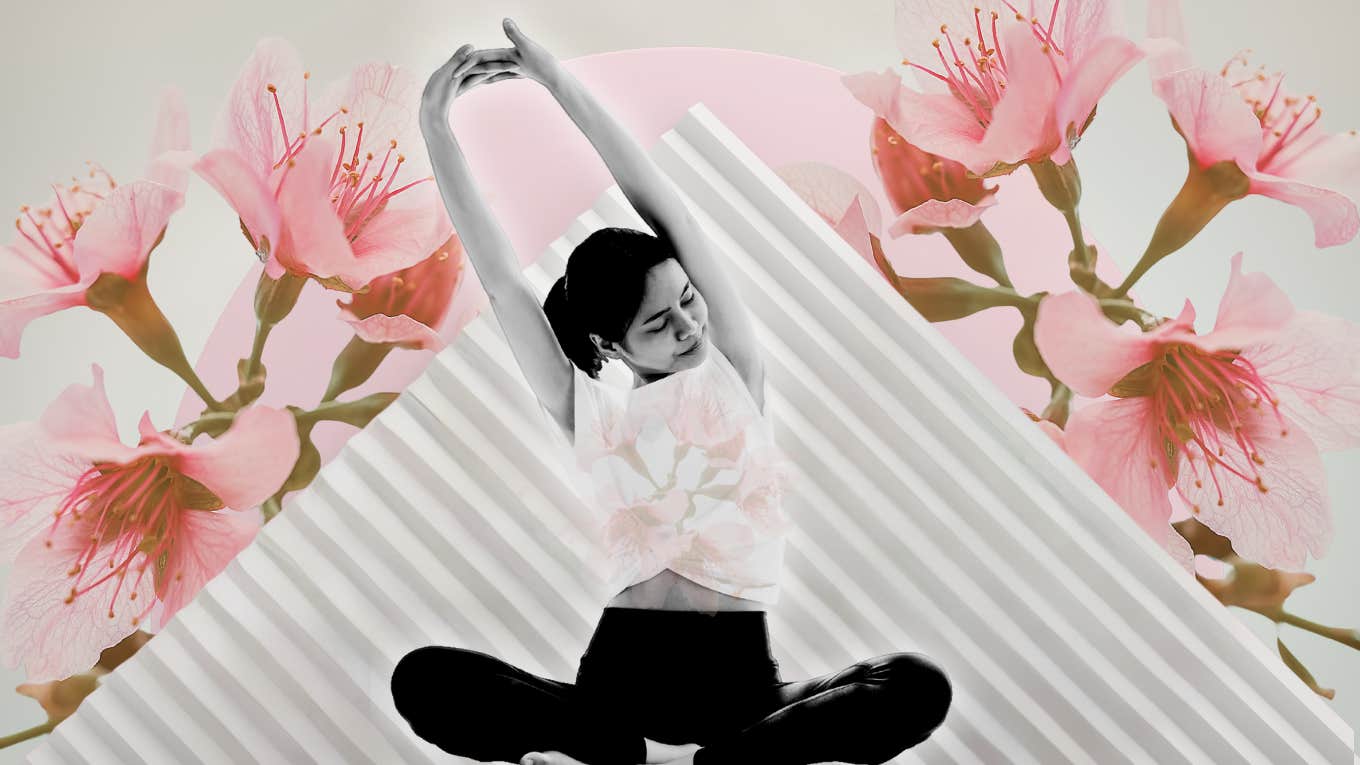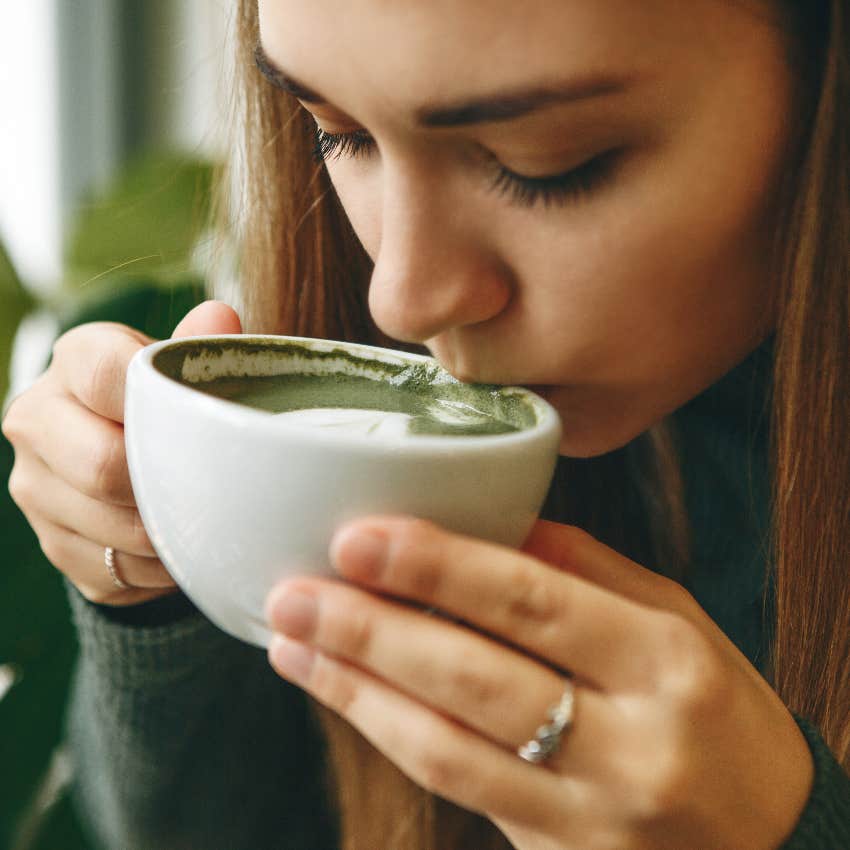7 Basic Japanese Habits That Completely Transformed My Life
Simple habits for a healthier you, straight from Japan.
 sitthiphong, kanchanachitkhamma, Navamin studio | Canva
sitthiphong, kanchanachitkhamma, Navamin studio | Canva Why are Japanese people so healthy and have long lifespans? There are also positive aspects of Japanese culture, particularly certain habits, that contribute to the health and longevity of its citizens. I’ve tried these habits myself, and wow, what a change they’ve made in my life —they’re easy to do and make every day a bit brighter.
Here are 7 simple everyday Japanese habits that transformed my life:
1. Taking a warm bath daily
In Japan, there are more than 3,000 hot spring areas. Public baths are common in cities, and nearly every home has a bathtub. Japanese people cherish their bath time, and so do I.
I think this habit of taking a bath is a big reason why Japanese people can stay physically healthy. Studies suggest that regular bathing can improve cardiovascular health and reduce stress. Here are the three main reasons:
- The first is that it warms your body, which has the effect of helping your muscles relax
- Second, water pressure within the bath helps improve metabolism as well as excrete toxins within the body
- Thirdly, because being in water allows your body to float, the pressure on bones and muscles is reduced, which helps relieve back pain and stiff shoulders
Taking a shower can warm and refresh your body. However, I’ve found that bathing makes my body feel warmer, more refreshed, and less tired afterward.
Japan has an abundance of water but in many countries, it may be difficult to take a bath every day. But if you can, and if you’re interested in it, please give it a try. Here are the health benefits of taking warm baths:
- Improved Circulation: Warm baths can enhance blood flow, supporting heart health
- Muscle Relaxation: Heat from the water relaxes muscles, reducing pain and stiffness
- Stress Reduction: Bathing can lower cortisol levels, alleviating stress
- Sleep Quality: The drop in body temperature after a bath can help improve sleep patterns
2. Keeping things clean
Second, the habit of cleaning. Japanese people love cleaning, or rather, it’s become a habit. I think it depends on the person, but basically, I clean my house every day. Whenever possible, I extend this practice to cleaning my neighborhood and public spaces as well. (We should all clean our neighborhood, shouldn’t we?) Even the Japanese took their trash home after the World Cup match.
I think the reason why Japanese people clean so much is because it connects to an important concept of “Shintoism” which values purity and cleanliness. From an early age, Japanese people are taught the importance of maintaining cleanliness, not merely as a routine task but as an integral part of their lifestyle. This cleaning habit keeps the environment around us clean and hygienic. I think this hygienic environment is one of the reasons why Japanese people can live a healthier lifestyle.
Scientific research supports the psychological benefits of a clean space, linking it to reduced stress and improved focus. Here are the health advantages of cleaning:
- Reduced Allergens: Regular cleaning reduces dust and allergens, aiding respiratory health
- Lower Infection Risk: Disinfecting surfaces can prevent the spread of infectious diseases
- Mental Clarity: A clean environment can decrease anxiety and improve mental well-being
- Physical Activity: The act of cleaning itself is a form of light physical exercise, promoting heart health
3. Daily exercise with Radio Taiso
The habit of special daily exercise. Have you ever heard of the word, Radio Calisthenics? This is a common exercise you can see in the morning in Japan. It’s called Radio Taiso, which is a composition of many stretches and movements you do with a song.
Studies have shown that daily, light exercise can significantly impact longevity and mental health. It seems that it’s said to be one of the reasons why Japan is considered to be a country of longevity from overseas.
Originally, it was made in 1928 to improve the health of Japanese people. When I do the sequence, it looks like this:
- Standing tall and stretching your whole body
- Stretching your back, arms, and legs
- Bending your knees
- Revolving your arms
- Spreading your legs
- Swinging your arms to the side
It’s pretty tiring if you do it seriously — as many as 13 types of exercises. Since it moves the body continuously, it not only has a cardio-like effect but also has the effect of stretching like doing yoga. Also because it’s easy to do, many age groups can enjoy it, from children to the elderly. By the way, my workplace also adopted this routine every morning. It’s interesting, isn’t it? Here are the benefits for your body:
- Enhanced Flexibility and Strength: It improves joint health and muscle strength.
- Cardiovascular Health: Consistent light exercise boosts heart efficiency and circulation.
- Improved Coordination: Enhances balance and motor skills, reducing fall risk.
- Mental Health Boost: Exercise releases endorphins, combating depression and anxiety.
4. Waking up early
Fourth, the habit of getting up early. Here's an interesting story about Japanese people around 1900, which was written by Lafcadio Hearn, who was an English teacher in Japan.
“One morning, before the sun rose, I heard a sound near my house. I wondered what it was. When I looked outside, I saw the villagers chatting and giggling, washing their faces with beach water. I was curious about what these people were doing. As soon as the sun rose over the mountain, they all turned towards the sun. They said, ‘Thank you for always looking over us,’ and clapped their hands, a tradition that has been around for about 100 years.”
Japanese people used to get up early every morning and worshipped the sun. Now this habit only remains during the new year, but the old Japanese used to do that every day. The reason for worshipping the sun is that in Shintoism, the sun is the supreme deity of Japan. Unfortunately, young people today don’t have such a habit, but many of the older generations still get up early, and some people continue this habit.
By getting up early, exposed to the morning sun, your natural clock will reset, and be in tune with the day’s energy. Research highlights the benefits of aligning our routines with the circadian rhythm. Here are some wellness benefits:
- Better Sleep Quality: Getting in sync with your body’s natural clock helps you sleep more deeply
- Increased Productivity: Seeing morning light stimulates alertness, enhancing cognitive function and it makes you feel more awake and sharp
- Lower Stress: Waking up early gives you extra time to get ready, making you less stressed
- Healthy Eating Habits: If you’re up early, you have time for a good nutritious breakfast, which helps you set a positive tone for the day’s eating habits
5. Eating Japanese food
The reason why Japanese food is considered healthy is because it offers a good nutritional balance. For one reason, it was recognized as an Intangible Cultural Heritage by UNESCO in 2013. A Japanese meal is usually composed of one soup and three side dishes.
- Rice, the main dish, is high in carbohydrates
- Fish or soy products are high in protein; you can also get vitamins or minerals from simmered and pickled vegetables
- Fermented foods, such as miso and natto, are known to improve digestion
In this way, Japanese food is a well-balanced diet that can help keep your body youthful and in good health. I love eating Japanese food. It’s delicious, and you can eat various kinds of colorful ingredients. So, it’s very fun to eat. But honestly, I’m not good at making it. This is because there are many products and seasonings you need to prepare, and it takes a lot of time and effort.
So, if you’re good at cooking, please give it a try and make some Japanese food. Here are some nutritional perks:
- Heart Health: A diet high in fish and soy provides omega-3 fatty acids, beneficial for heart health
- Weight Management: High in vegetables and fiber, it promotes satiety and aids in weight control
- Digestive Health: Fermented foods common in Japanese cuisine support a healthy gut microbiome
- Reduced Risk of Chronic Diseases: Lower in processed foods, it’s tied to a decreased risk of diseases like diabetes and certain cancers
6. Drinking matcha
According to the Journal of Clinical Biochemistry and Nutrition, matcha intake is correlated with lower risks of cardiovascular diseases and metabolic syndrome. The reason why Matcha is healthy is because it’s packed with nutrients. It’s a rich source of minerals like calcium and dietary fiber, and it’s full of antioxidants, including catechins. Plus, since matcha is ground from whole tea leaves, it offers several times the nutrients you’d get from regular tea.
 franz12 / Shutterstock
franz12 / Shutterstock
That’s why I make it a point to drink matcha every morning. I’ve found that starting my day with matcha not only boosts my health but also helps me feel more relaxed and improves my work performance. By the way, my great-grandmother also drank matcha every morning. While I can’t say for sure it was the matcha, she lived a healthy life until nearly 100 years old. Here are some healthful impacts of drinking matcha:
- Antioxidant-Rich: Matcha is packed with catechins, which fight free radicals and inflammation
- Brain Health: L-theanine in matcha can enhance focus and reduce stress without causing jitteriness
- Metabolism Boost: It can slightly increase metabolic rate, aiding in weight management
- Cholesterol Management: Regular consumption may help lower LDL (bad) cholesterol levels
7. Hiking mountains
There are many mountains in Japan, and many people make it a habit to climb those mountains. Research confirms that regular exposure to natural environments, like hiking, can reduce stress and improve physical health.
I believe that hiking is one of the key factors contributing to the healthiness of the Japanese population. This is because it strengthens your legs and feet, so your body doesn’t weaken. For instance, my grandfather made it a routine to hike up a mountain nearly every week, even when he was over 70 years old. He remained active daily, working in the fields, and lived a healthy life until he was about 80 years old
Here are some vital benefits of hiking:
- Cardiovascular Strength: Hiking is a powerful cardio workout, that strengthens the heart
- Mood Improvement: Exposure to nature and physical activity reduces symptoms of depression and anxiety
- Bone Density: Weight-bearing exercises like hiking can help maintain healthy bone density
- Vitamin D: Spending time outdoors increases Vitamin D levels, essential for bone health and immune function
What I learned from these Japanese habits and how they changed my life:
Starting these habits felt like I was on an adventure with myself, learning what makes me happy and how to live a better life. Every habit I developed — from eating healthful meals to finding my inner peace while cleaning — helped me become a happier, healthier, and more aware version of myself.
But I think it’s super important to remember that everyone’s different. What rocked my world might not do the same for you, and that’s OK. The real magic happens when you play around with these habits and see how they fit into your own life.
Nikita Singh is a Registered Dietitian Nutritionist who loves writing about health, fitness, and personal growth. She is dedicated to helping people make positive changes in their lives and, for over a year, has been sharing practical tips and life lessons on Medium.

